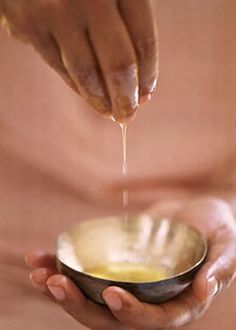The whole exercise and purpose of Ayurvedic treatment is to help us remove the excess Dosha and toxins accumulated over the years due to incompatible and incorrect life-style.
Typically detoxifying treatment takes place over a period of days or weeks (or longer). Some aspects can be managed as part of your daily routines (such as eating correctly, self massage, exercise, and taking herbal formulations as recommended by us). The treatment phase follows the lifestyle consultation and pulse reading once we know what is needed for you.
The excess Dosha and toxins may/may not have caused any apparent disease thus far but nevertheless Ayurvedic pulse reading and diagnosis helps us to see subtle disturbances. Such disturbances, if left unchecked, may contribute later on to further excess Dosha and toxins accumulating and further disturbance to your Prakriti (birth constitution).
The pulse readings give us a ‘road map’ showing us where we have come from, where we are now, and also where we are heading. This allows us to take the necessary steps to remove excess Dosha now and adjust our lifestyle to continue to manage our Prakriti for the rest of our lives. The pulse reading also helps us understand the root cause of any disturbances we are currently experiencing.
We can achieve the correction, restoration and management of your constitution through short- and long-term treatment. An explanation of these approaches is given below.
Short -Term Treatment (For detoxification and Restoration):
This phase of treatment may include some or all of the following:
Shiro-Abhyanga Ayurvedic Head Massage
- The period of short-term treatment is not fixed but depends on your needs and much will depend on you; your attitude, discipline and commitment; also the degree of any disturbances and how stubborn the excess Dosha are to remove
- Typically this short-term intensive treatment may last for one to several months
- Panchakarma may follow after one or more months once you are suitably stable and prepared, and a seven-day intensive program would be generally recommended
- All short-term treatment will be individually prepared to suit your unique constitution and will focus on detoxification
Long-Term treatment:
This aspect of treatment mainly deals with lifestyle management, meaning, how to live your life on a moment-to-moment basis without disturbing your natural and unique state (Prakriti). This starts now and continues throughout your life.
This phase of the treatment includes gaining knowledge on how to manage your Dietetics, exercise, attitude, work, relationships, the ever-changing environment and climate and seasons; and developing an appropriate time-management routine.
This life long approach is what traditional Ayurveda is really all about, the awareness and practical application of this knowledge each day and in every moment to manage your unique Prakriti. However, this understanding has been almost entirely lost today and the focus is often on treatment only. Here, we treat each patient with long-term stability in mind.
The Classical approach to using Ayurveda to stabilise the body and mind:
While short-term treatment is very important when Dosha are aggravated and disturbed (for detoxification) and to rebuild and nurture (for rejuvenation), treatment is still a temporary aspect – not the main or only consideration. Unfortunately today, for reasons of commercial gain, Ayurveda has been sold as an alternative medical system and Ayurvedic herbs and treatments are used to treat symptoms of disease rather than the underlying more subtle disturbances of the whole individual.
Traditional Ayurveda works to remove excess Dosha and to support and educate the individual and help them to take responsibility for themselves and take charge of their life.
Often times disease symptoms may disappear or reduce once a person’s Dosha become more stable and an individual takes on more responsibility for managing their life.

